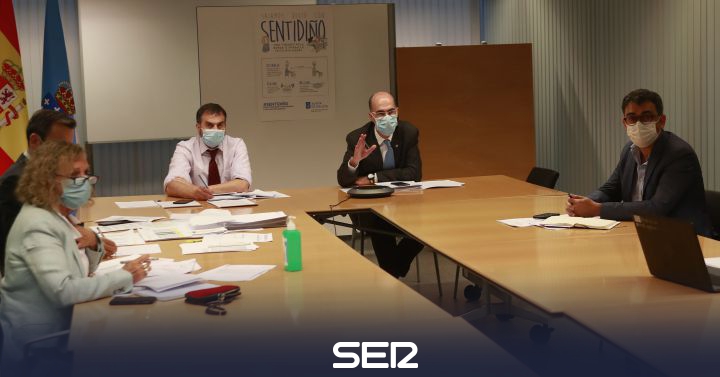The coronavirus continues to advance in Galicia and forces Sanidade to take measures every week. Santiago and Ourense release new restrictions from this Thursday. There are already four of the seven main Galician cities in which the clinical committee of experts that advises the Xunta has recommended adopting measures to contain the outbreak, while the Galician Government continues to insist that Galicia is better than the rest of Spain.
The new measures that will also be applied in Santa Comba, A Laracha and Carballo are similar to those in force in A Coruña and Lugo: private meetings are limited to ten people and local capacity is reduced to 50%. Of course, open-air festivals and parties are not allowed, entry and exit to residences are prohibited, and day centers are closed. The number of people attending weddings, communions and wakes is also reduced.
In Galicia the number of new positives remains above 200 a day, there are more and more outbreaks, and the health authorities are trying to calm the contagion curve. Now, after the measures in A Coruña and Lugo, they focus on two areas: Santiago and Ourense.
BUGALLO: “YOU HAVE TO COMPLY WITH THE RULES”
The mayor of Santiago, Xosé Sánchez Bugallo, reacted to the new measures imposed by Sanidade. The councilor affirmed that “it was something perfectly predictable, with what we already had. We must be psychologically prepared to face these restrictions. It is very important to be prudent, responsible and comply with the rules that are determined. The measures must be respected in the workplace , where we play sports or at school, but also when we go out, meet friends or go for a coffee or a drink “.
In the case of the Galician capital, the Galician Health Service recognizes that there is “high risk” of “multiple chains of transmission”. An outbreak in the city’s main gym has the authorities in check, because its users come from multiple points in the city and the region, which contributes to spreading the virus. In this case, most of those infected are young people between 20 and 24 years old.
While, in OurenseIt worries that cases are occurring in older people. The alarms have gone off because “the average age of the most affected people is higher than the rest of Galicia“.
–


